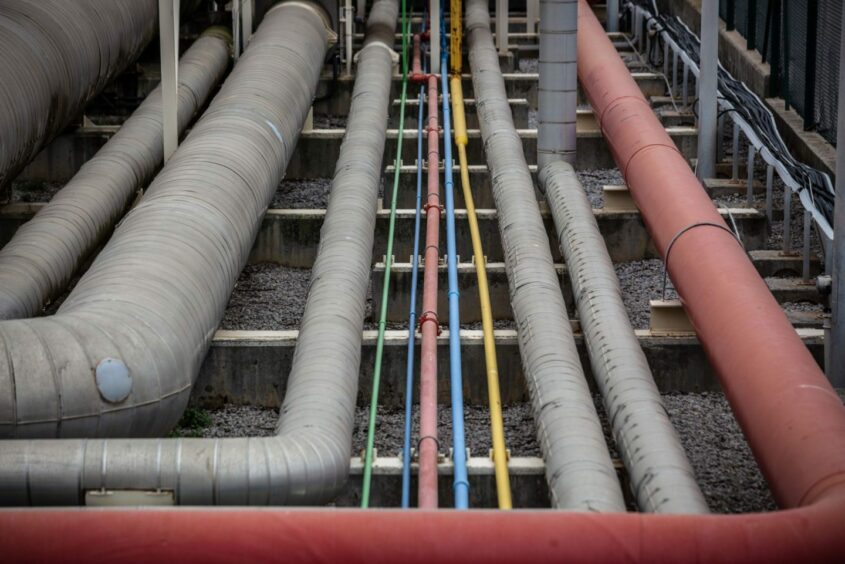
European ministers will discuss special measures to rein in soaring energy costs, from natural gas price caps to a suspension of power derivatives trading, as the bloc races to respond to the deepening crisis.
Gas prices surged more than 30% Monday after Russia’s decision late Friday by Gazprom PJSC to keep the crucial Nord Stream pipeline shut. The energy crisis is also under intense pressure, dropping below 99 US cents to its weakest level since 2002.
The Czech Republic, which holds the European Union’s rotating presidency, is set to include those tools on a list of emergency intervention options to be discussed at a meeting of energy ministers on Friday, according to a draft document seen by Bloomberg News.
Europe is fighting to stave off an energy catastrophe that’s threatening to become an economic, social, and even financial crisis. Nordic authorities moved this weekend to bolster the liquidity of utilities struggling with collateral requirements, saying there was a risk of a “Lehman” moment.
European leaders have been working for months to try to offset the impact of Russia’s squeeze on gas — a move they describe as the weaponization of energy. But Russia’s move on Nord Stream brought a new sense of urgency.
Russia’s move to halt supply is set to send natural gas prices toward record highs in Europe, as well as Asia, and heap more pressure on power generators. Utilities in Asia were already ratcheting up efforts on Monday to secure shipments of liquefied natural gas, according to traders, intensifying competition with rivals in Europe for a dwindling amount of available fuel that threatens to send prices higher.
Over the weekend, Germany — the country most affected by the Nord Stream cutoff — unveiled a $65 billion package to protect consumers, with a levy on windfall profits. Thousands of Czechs protesting in the streets this weekend served as a reminder of the social and political risks.
“It is clear that the upcoming heating season will test the resilience of the EU energy market,” the Czech presidency plans to tell member states, according to the draft document for the emergency meeting. “It is critical to take stock of market developments and identify possible measures to address high electricity prices driven by high gas prices.”
The options the Czech presidency is set to suggest would complement measures floated by the European Commission in a policy note seen by Bloomberg last week. They included a power-demand reduction and price caps on renewables, nuclear and coal. The presidency is poised to propose similar solutions in the power sector and float the following additional tools:
To limit the impact of gas prices on power prices:
temporarily capping the price of gas used for electricity generation
putting a price ceiling on gas imported from Russia
temporary exclusion of power production from gas from merit order and price setting on the electricity market could also be an option
To increase liquidity on the market:
an urgent Europe-wide credit line support for market participants faced with very high margin calls
capping the limits for margining or automatic price ceiling adjustment
temporary suspensions of European power derivatives markets.
The Czech presidency is also set to suggest an assessment of how the EU could use its carbon market to address high electricity prices and ensure a quick deal on a commission proposal earlier this year to sell some permits withdrawn from the market and kept in a special reserve. Such sales would boost supply of emission permits, helping lower their prices.
The planned intervention should be designed in a way to avoid an increase in gas consumption or jeopardize the efforts to cut gas demand. It should be simple to implement and coordinate across the bloc and be consistent with the bloc’s climate goals, the presidency said in the draft document.
Recommended for you
